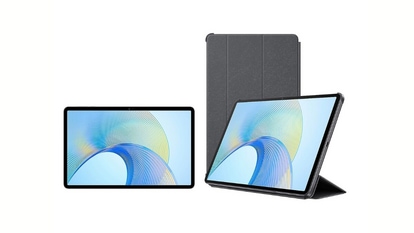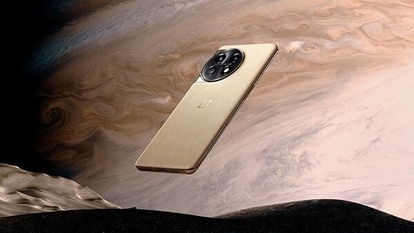How Facebook is changing Internet.org to make it more inclusive
Internet.org’s biggest problem was its lack of transparency. No one knew how Facebook or telecom operators picked and chose the services that Internet.org featured. Today, Facebook is changing that.

Internet.org, Facebook's marquee program to bring people in developing countries online, first came to India in February. Facebook partnered with Reliance Communications to provide almost 40 websites and services free to users — everything from news and weather information to travel sites like Cleartrip. It also included free access to Facebook and Facebook Messenger.
Last month, the cookie crumbled. Partners like Cleartrip and NDTV publicly pulled out of the program stating that Internet.org violated the principles of net neutrality , which state that all data on the internet should be treated equally. Cleartrip's blog post announcing the decision said: "It is impossible to pretend there is no conflict of interest (both real and perceived) in our decision to be a participant in Internet.org."
Internet.org's biggest problem was its lack of transparency. No one knew how Facebook or telecom operators picked and chose the services that Internet.org featured. Today, Facebook is changing that .
Internet.org is now an open platform for website developers. Think of it like the app store on your Android device or your iPhone. Just like developers can write apps and submit them to Apple or Google to be featured in their app stores, website makers can customise their sites to Facebook's guidelines and submit them to Facebook to be a part of Internet.org.
In an interview with Hindustan Times, Chris Daniels, the Vice President of Product for Internet.org at Facebook talks about why the world's largest social network is moving fast to fix its ambitious — and controversial — program to connect the next billion people to the internet.
Excerpts from the interview:
Are you making Internet.org into a platform that anyone can sign up for in response to high-profile partners like Cleartrip and NDTV puling out?
This is a natural evolution to the program. We started off with just a few content partners because we needed to prove the model worked for operators, that it was bringing more people online. I've been talking to many content and operator partners and I think it's good timing now.
So why did your partners pull out?
I think you'd have to ask them why they pulled out. So, um, yeah, you should probably just talk to them.
What is the biggest difference between Internet.org and the new Internet.org platform?
I think the biggest change is that we're offering consumers choice. Any developer can submit their site or service to us to be a part of the new Internet.org platform.
Yes, there will be an approval process. We're going to have guidelines for developers. In general, sites and services that are part of the Internet.org platform will need to adhere to three principles: they need to offer a simpler version of their existing service to encourage people go out and explore the broader internet. They will also need to be extremely data efficient because this has to work for [telecom] operators. It can't be a constraint on their networks. So things like video or high-resolution photos aren't going to be appropriate for this. These are basic services.
Isn't that discrimination against different types of content? Isn't this against net neutrality?
I think the key thing here is that some access is better than no access. The purest definition of net neutrality shouldn't be used to deny people access to the internet. We firmly believe that we need to give people access to some sites in order to show them how they can use the broader internet to improve their lives.
Is this about educating people about what they can use the internet for? Or is this about making access free?
This is about online literacy. This is about helping people understand the value of being online.
And making it free for them.
Isn't that a problem in the long term? Once people start getting certain services for free, why would they use anything that they are required to pay for?
What we're doing is just giving people a jumping-off point. You have to give them a basic understanding of what's on the internet and a place to begin their journey.
So what's that jumping-off point going to be? How will people find these free, basic services on Internet.org?
There will be a search option. And something like a browser with a set of bookmarks.
Who chooses the bookmarks?
But Facebook is still playing editor. How many people are going to go beyond the pre-chosen bookmarks on their screen and search for other services if they don't even know about them in the first place?
I don't know how consumers are going to behave. I feel pretty confident that this is a good user experience.
Will consumers have to sign in through Facebook to access Internet.org?
No, they won't. You don't have to be a Facebook user to access Internet.org content.
Can Facebook track the usage of sites that people access through Internet.org?
Yes, we do know what users are accessing. We do have some of that information. But all of it is governed by Facebook's standard data policies.
Here's a tweet that Cleartrip put out when they pulled out of Internet.org. It's a quote by [philosopher] Edmund Burke: "All that is necessary for the triumph of evil is that good men do nothing. #NetNeutrality"
Why are your own former partners calling you evil?
I honestly don't know why partners would call Facebook or this program evil. Our intentions are good. I want to make something clear: we are not exclusive with any single operator. We are not paying operators for the data that is consumed. The only way an operator gets any benefit is if people coming online as a result of this service discover the broader internet and pay for the broader internet.
Sure. But if I'm someone who runs an online service or a website, I'm thinking "Why do I have to go through Facebook to reach the next billion people?"
You don't. There are many companies who have partners with operators to zero rate their services.
Let's talk about zero rating, which Facebook has long supported. It's a controversial term in the net neutrality debate in India today.
We think zero rating is a good thing if it brings more people online. A lot of people aren't aware of the value of the internet, so a basic set of services becomes an on-ramp for them. Providing these for free makes sense. A version of net neutrality that prohibits people from coming online more quickly is not something we think is good for the world.
And yet, Facebook is a part of the Cellular Operators Association of India, a telecom industry lobby that is, arguably, pushing the government for a non-neutral internet in India. They want online services to be licensed, among other things.
I think we're also a part of other trade associations that are on both sides of the [net neutrality] debate. So, um, I don't know. We're part of a lot of associations.
Read
Mark Zuckerberg to HT: Net neutrality and universal connectivity must co-exist
It's not over yet, let's keep the gears of net neutrality moving
If Internet.org is a corporate plot of Facebook, then it's a good one
Catch all the Latest Tech News, Mobile News, Laptop News, Gaming news, Wearables News , How To News, also keep up with us on Whatsapp channel,Twitter, Facebook, Google News, and Instagram. For our latest videos, subscribe to our YouTube channel.

























